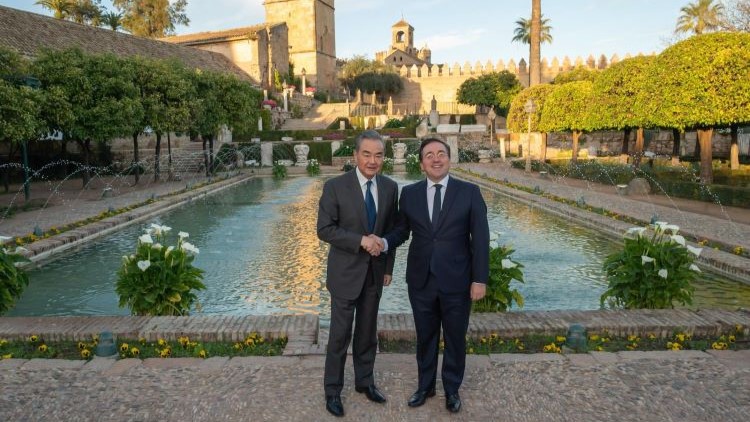Eduardo González
The Minister of Foreign Affairs, José Manuel Albares, will attend the EU Foreign Affairs Council (FAC) today in Brussels, in which the green light will likely be given to the new European mission to safeguard freedom of navigation in the Red Sea. a mission in which, as the head of Spanish diplomacy himself made clear in the previous FAC, “Spain will not participate.”
This month’s FAC will focus on three major points: the crisis in the Middle East, the war in Ukraine, just a few days after two years of the start of the Russian invasion; and the situation in the Sahel. Human rights violations in Belarus and this country’s support “for Russia’s war of aggression against Ukraine” will also be addressed.
The meeting, chaired by the High Representative for Foreign Affairs and Security Policy, Josep Borrell, will begin with a debate on the deepening of the humanitarian crisis in the Gaza Strip and on the need for a cessation of hostilities, the arrival of aid humanitarian aid without obstacles and the role of the United Nations Agency for Palestine Refugees (UNRWA), an organization that is in question after Israel has accused some of its workers of being linked to Hamas and that around twenty donors have decided to provisionally withdraw their financial support (Spain has increased its aid by 3.5 million euros and Borrell has assured that “the European Union has not suspended funding to UNRWA”).
Ministers will also exchange views on the regional dimension and the risks of regional escalation and address steps to revive the two-state solution and preparatory work for a peace conference, as reported by the Council last Friday. Sven Koopmans, EU Special Representative for the Middle East Peace Process, and Luigi Di Maio, EU Special Representative for the Gulf Region, will be present during the debate.
Furthermore, as reported last Friday by the EU, “the Council is expected to adopt the decision to launch Operation EUNAVFOR ASPIDES to safeguard freedom of navigation in relation to the Red Sea crisis.”
At the previous FAC in January, EU Member States agreed to the creation of a new European mission to defend maritime traffic in the Red Sea from attacks by Yemen’s Houthi rebels, but decided to postpone any decision on its capabilities, scope, its calendar or its mandate until the next Council, precisely the one being held today in Brussels.
In the press conference after that meeting, Albares assured that there had been “no opposition from any State to this EU operation going ahead,” but warned that “Spain’s participation is not foreseen.” Spain had vetoed the possibility of extending the current Atalanta mission against piracy in the Indian Ocean to the Red Sea, but the decision of the 27 to create a new mission outside of Atalanta and based on another existing one (in this case, Agenor, which operates in the Strait of Hormuz) has not been enough, in principle, to change the opinion of the Government of Pedro Sánchez.
Spain has refused to send ships and troops to Operation ‘Guardian of Prosperity’, led by the US to protect navigation in the Red Sea. However, Sánchez specified in mid-January that he would be willing to “study” the US proposal for Spain to participate with liaison officers in the Red Sea mission.
Ukraine
The other big point of today’s CAE is Ukraine, a few days before the second anniversary of the start of the invasion, which began on February 24, 2022. The Minister of Foreign Affairs of Ukraine, Dmytro Kuleba, will address the Council by video conference to brief ministers on the situation on the ground, Ukraine’s military needs and the support required from the EU at this critical moment in the war.
In the subsequent internal EU debate, Borrell will report on his recent mission to Ukraine and will follow up on the extraordinary European Council on February 1, in which European leaders invited the Council to reach an agreement, by early March, on the Ukraine Assistance Fund and reiterated the urgent need to accelerate the delivery of ammunition and missiles.
It will also address the 13th package of restrictive measures against Russia, the Peace Formula for Ukraine, the holding of a future peace summit and the coordination of initiatives in view of the second anniversary of the invasion, including the debate that will take place on 23 February at the United Nations General Assembly, which Borrell and Kuleba will attend. Albares himself will participate that same day in the Ministerial Meeting of the General Council of the United Nations Assembly on maintaining the Peace and Security of Ukraine, in New York.







